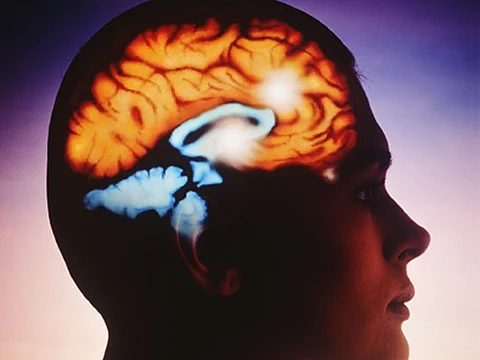FRIDAY, Nov. 17, 2017 (HealthDay News) -- The diagnosis and treatment of two conditions -- chronic fatigue syndrome and Gulf War illness -- could improve thanks to the discovery of distinct brain chemistry signatures in people with these disorders, researchers say.
The illnesses share symptoms such as pain, fatigue, thinking problems and exhaustion after exercise. They're often misdiagnosed as depression or other mental health problems, according to the study team from Georgetown University Medical Center in Washington, D.C.
The investigators found brain changes, specifically in levels of miRNAs -- which turn protein production on or off -- in people with one of the disorders who were given a spinal tap 24 hours after they exercised for 25 minutes.
"We clearly see three different patterns in the brain's production of these molecules in the [chronic fatigue syndrome] group and the two [Gulf War illness] phenotypes," said senior investigator Dr. James Baraniuk. He is a professor of medicine at Georgetown.
The miRNA levels in these disorders were different from the ones that are altered in depression, fibromyalgia and Alzheimer's disease, he said. Baraniuk described this as further confirmation that chronic fatigue syndrome and Gulf War illness are distinct diseases.
"This news will be well received by patients who suffer from these disorders who are misdiagnosed," he said in a university news release.
Chronic fatigue syndrome affects about a million Americans, according to the U.S. Department of Health and Human Services. Previous research by Baraniuk found that more than one-quarter of the 697,000 U.S. veterans deployed to the 1990-1991 Persian Gulf War had developed Gulf War illness, according to the news release.
Gulf War veterans had been exposed to combinations of nerve agents, pesticides and other toxic chemicals that may have triggered chronic pain, thinking, gastrointestinal and other problems, Baraniuk said.
More information
The U.S. Centers for Disease Control and Prevention has more on chronic fatigue syndrome.


